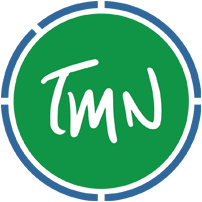Over the last forty years I’ve written more than a few books about the Euro-tribal churches and the nature of leadership. I’ve wrestled with questions of what it means to be God’s people in an era of unraveling. I now believe that the most important question we must address is:
In a world confronted with cascading catastrophes, what does it mean for God’s people to form communities of hope that offer to our world an alternative way of living?
This is the leadership question we must address as God’s people or become irrelevant. Everything else is playing with absurdities.
This, for me, is a turning point.
I have offered critiques and proposals for the fixing, renewing and reforming of the church over these years only to recognize how misdirected my desires have been. Our situation can no longer be about fixing, renewing or refurbishing our congregations and the systems that serve them. It was a hard awakening to realize that many of the proposals I was making came right out of the technocratic skills and methods I’d absorbed in my training and leadership. I followed one trend after another, whether it was the early days of renewal and charismatic worship or the more recent forms of adaptive change and innovation. I embraced the missional movement only to realize that, in our drive to fix our churches, we’d taken Newbigin’s prophetic insights and turned them back into another method of making the church work.
I’ve struggled with questions such as:
- Why do all our conversations keep defaulting to the church?
- Why do we constantly borrow frames, techniques and models from the business, medical or social sciences fields?
- Why are God’s people still dominated by a professional guild of clergy rather than being shaped by what’s happening in the everyday, ordinary lives of people?
- Why our obsession with “change”?
- Why are we driven by the anxiety of irrelevance?
- Why do we as leaders have such a need for control?
Through these questions there was coming to me this slow realization that so much of our leadership and church life is built on the foundations of our own agency. Our Lord is a helpful resource around the edges in terms of prayer and personal spirituality, but not the primary agent shaping God’s people. These are the painful realizations I’ve had to encounter in addressing this question of forming communities of hope in the midst of the cascading crises now overwhelming us all.
What I know is that the Spirit of Christ continues to gestate the kingdom. What I know is that there are a lot of us out there who sense the call to a very different way of being God’s people; however, we’re no longer clear about what’s happening or even the steps we need to take.
We’re looking for companions who will journey with us in trying to understand what’s happening in this unraveling and how we might form communities of hope. In reflecting on all this, I’ve taken my forty or more years of learning to ask how we go on this profoundly challenging journey.
I’m making a beginning with the Leaders Table. Like the front door to a huge journey none of us have undertaken, it’s a table where we can ask: What’s going on? What is God saying to us? What might this journey involve if I take it with others?
Join the Leaders Table this fall. Four sessions starting Sept 27.


excellent question and very thoughtful reflection. That alternate form of living must not only represent hope but also speaking truth in love with gentleness and reverence.